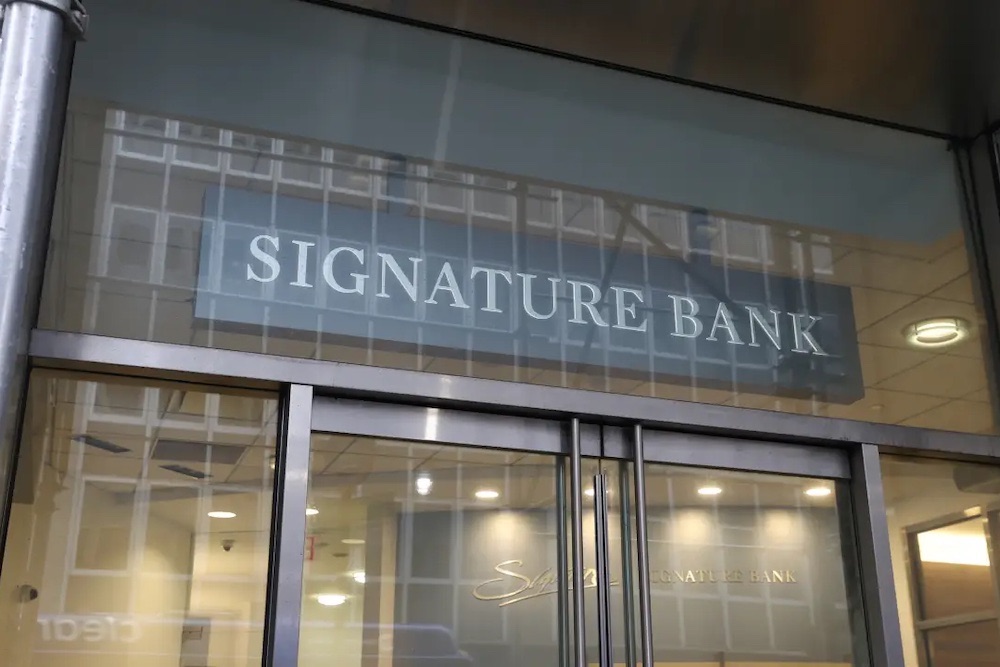Adrienne A. Harris, superintendent of the New York State Department of Financial Services (NYDFS), has revealed that the closure of US crypto-friendly Signature Bank was not because it had ties to the crypto sector.
Signature’s Collapse Had Nothing to Do With Crypto
According to a report from the Wall Street Journal, Superintendent Harris made the comments during the Links crypto conference hosted by blockchain analytics firm Chainalysis on Wednesday.
Harris disclosed that Signature Bank was closed due to liquidity problems within its management. The superintendent described the events leading up to the bank’s failure as a new type of bank run. The bank had many uninsured deposits while lacking adequate liquidity management protocols to meet withdrawal requests.
Last month, the NYDFS shut down Signature Bank to prevent an impending banking crisis. The financial watchdog claimed the move was to protect the US economy and banking system as two other entities – Silvergate Capital Bank and Silicon Bank – had collapsed due to severe liquidity issues.
Prior to Signature’s closure, several crypto firms had turned to the bank after Silvergate, a major crypto-friendly lender, went into voluntary liquidation. Signature’s discontinuation dealt a significant blow to the US crypto space, as several entities had large funds deposited at the bank.
The NYDFS placed Signature in the receivership of the Federal Deposit Insurance Corporation (FDIC) to protect depositors and marketed the remains of the bank to interested buyers.
Not Operation “Choke Point 2.0”
Signature’s closure sparked rumors that the government was trying to eliminate crypto by cutting off its access to the banking system. People even claimed the move aimed to send an anti-crypto message, tagging it “Operation Choke Point 2.0.”
“The idea that the taking possession of Signature was about crypto and this is Choke Point 2.0 is really ludicrous,” Harris said.
The NYDFS head further explained that the crypto industry still lacked maturity in compliance despite its growing prominence. She added that such compliance programs needed adequate technology like blockchain analytics tools and trained professionals to use them.
“There is still a lack of maturity around Bank Secrecy Act-anti-money-laundering [compliance] and cybersecurity. We’re eager for the day when those systems mature and scale as the business side does,” Harris added.
Find Cryptocurrencies to Watch and Read Crypto News on the Go Follow CryptosToWatch on X (Twitter) Now

